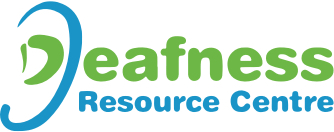Information as provided by SignHealth
Why you need the Accessible Information Standard
We all expect to be involved in decisions about our health. But some medical information shared with us can be complex. If we don’t fully understand what we are being told, we can’t make informed decisions about our care or choose the right treatment for us.
The Accessible Information Standard (AIS), introduced in 2016, gives Deaf and disabled and people with the legal right to receive health and social care information and communications in a format that works for them.
It means that by law, all publicly funded health and social care providers must fully comply with the AIS. However, there’s a growing body of evidence suggesting that this is not happening.
Deaf patients shared experiences of a lack of accessible communications as a barrier to:
- making appointments
- communicating with health professionals
- finding out test results
- receiving accessible information on discharge or medication instructions.
Not meeting patients communication needs caused them to receive lower quality of healthcare, including situations which could put deaf patients at serious risk. Please watch some examples of this in the videos below.
NHS keep calling my phone
No interpreter for surgery
NHS staff wear face masks
What you need to know
- Deaf people must have the same level of access to information about their health as hearing people do.
- Deaf people must receive the communication support they require
- Information must be provided in an accessible format.
- There are 5 steps NHS must follow:
Ask
Staff must ask you (the patient), if you have a communication need and what support you need. They should ask how you want to communicate at appointments, the best way to contact you and how you can contact them.
Record
Your communication needs should be clearly recorded in your patient record.
Alert / Flag
An alert or flag should be used on your file so that all staff are aware of your communication needs. This should include details of how to book support.
Share
Information about your communication needs should be shared with other health and social care services.
Act
NHS services need to be ready to interact with you, using a range of methods including; text, email, face to face, remote or other methods. If you need a BSL interpreter, one should be booked for every appointment.
